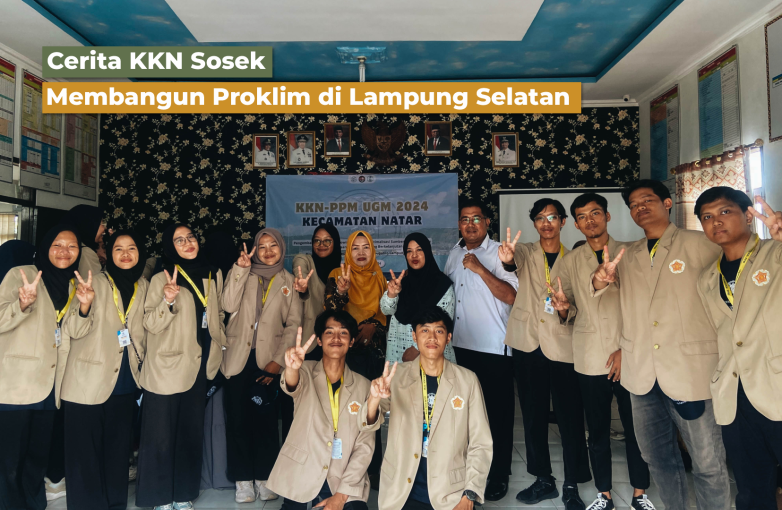
Ulin Nuha Diah Wulandari, a student of the Department of Agricultural Information and Communication, Gadjah Mada University, Yogyakarta, is conducting a 50-day Real Work School (KKN) program at Dusun Serbajadi 2, Village of Appeal, Natar Prefecture, Lampung South District, Province of Lampung. Raising the theme of “Proklim” (The Village Climate Programme), Yogyakarta UGM is focusing on the management of garbage, the movement of smoke-free dozen areas, and the development of K3 (Kebun Toga, Kolam, dan Kandang).
For Ulin, this KKN activity is an effective experience and an exciting challenge. One of the most effective moments for Ulin was following the PKK Rakordus Serbajadi 2 in the ecosystem of the Bronjong River. There, they mixed up with the PKK mothers, playing games, and jogging toga with joy. This experience demonstrates the inherent closeness and affinity between the KKN team and the community. Although the KKN program is running well, Ulin and his team are also facing some challenges. One of them is team dynamics consisting of different characters and backgrounds. The key is open communication and care for each other. Another challenge is to adapt to local culture and customs. Ulin also learned a lot about Lampung culture, ranging from language, customs, to other uniqueness that has never been found in Java.
The community has become more aware of new developments and innovations, such as the treatment of garbage with maggot, the processing of crude oil into aromatherapy candles, and other KKN programmes. The enthusiasm of the public is very high, as can be seen from their active participation in every programme of work. In fact, they often invite the KKN team to eat together, have a relaxing chat, and attend activities in the lobby. Ulin and his team don’t work alone. They have collaborated with various parties, such as the government of the Village Calling, PKK, B2SA, mosque youth, DLH Lampung, and PIAT UGM. This collaboration helps to smooth the work programme and ensure its usefulness to the community.
KKN in Dusun Serbajadi 2 is a valuable experience for Ulin. He learns about new cultures, independence, and how to share knowledge with society. Ulin also conveyed the message that the KKN program is essential to disseminate information and innovation, to be an agent of change, and to contribute to the development of the community. For other students who are going to implement KKN, Ulin suggested to dig into the location of KKN information, find the location that suits the field of study, build solid teamwork, and be flexible in adapting.
The KKN activities carried out by Ulin and friends also contributed to the achievement of several SDGs points, namely:
- Point 2 (Good waste management can reduce environmental damage and have an impact on sustainable food availability)
- Point 3 (KKN projects that focus on waste management and smoke-free areas can contribute to community health and welfare)
- Point 11 (The Climate Village Program (Proklim) aims to create villages that are adapted and responsive to climate change)
- Point 12 (Waste management initiatives carried out in the UGM Yogyakarta KKN are in line with the principles of responsible consumption and production)
- Point 13 (Proklim promoted in the UGM Yogyakarta KKN also contributes to efforts to overcome climate change)
- Point 17 (UGM Yogyakarta KKN involves students, village government and local communities, which is a form of partnership to achieve sustainable development goals).
